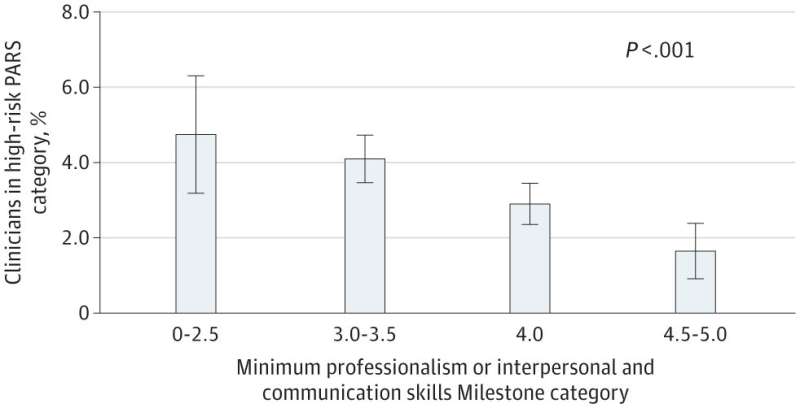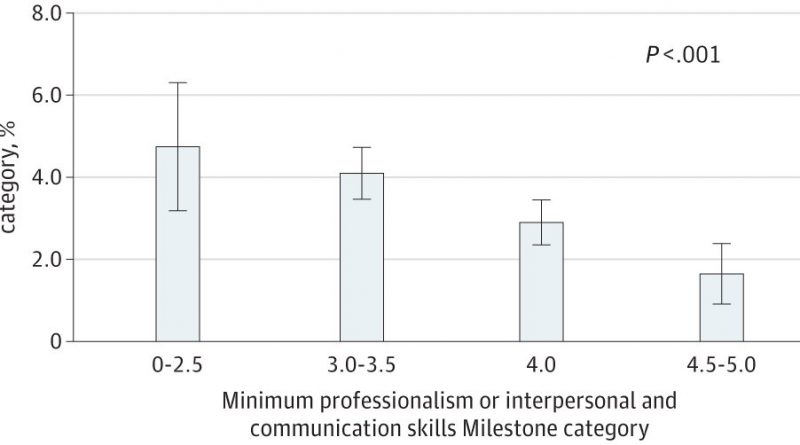Low-professionalism physicians-in-training later draw higher patient complaints: Study

The first study to examine evaluation scores for professionalism and interpersonal communication skills among physicians-in-training and what happens afterward as these doctors begin their practice is reported in JAMA Network Open. The study tracked 9,340 early-career physicians from across the country.
The study finds a strong association between lower ratings for these competencies among residents in their last year of training and greater likelihood of unsolicited patient complaints among doctors during their first year of employment after training.
“What makes this result all the more noteworthy is the previously established connection between physicians’ patient complaints and their clinical outcomes, malpractice claims, and their own well-being concerns,” said a leader of the study, William Cooper, MD, MPH, Cornelius Vanderbilt Professor of Pediatrics and Health Policy and vice president for patient and professional advocacy at Vanderbilt University Medical Center.
“The study results highlight that residency programs that train these doctors and the health systems and practice groups who later employ them should do what they can to help physicians with low ratings during training improve their performance,” Cooper said.
Researchers from VUMC were joined in the study by researchers from several U.S. and Canadian academic centers.
To maintain accreditation, U.S. graduate medical education programs must assess residents on several competencies throughout their training, and among these are professionalism and interpersonal communication skills. Residency programs aim for their trainees to achieve competency scores indicating proficiency or excellence.
Meanwhile, out in the larger world, unsolicited complaints from patients and coworkers about individual clinicians are tracked by the Patient Advocacy Reporting System, or PARS, developed by VUMC’s Center for Patient and Professional Advocacy and used by some 200 health systems and multispecialty practice groups across the United States.
Early-career physicians are at greatest risk for both unsolicited patient complaints and malpractice suits. PARS scores increase with the number and severity of patient complaints. In the study, PARS scores for first-year doctors in post-training practice ranged from zero to 88, with 75% of doctors having a score of zero, 21.7% having scores of one to 20, and 3.4% having scores of 21 or greater.
Among the study results: After adjustment for gender, age, and several other potential confounders, compared to the 39% of physicians who as residents scored as proficient for professionalism and interpersonal communication, the 8% who scored lowest for these two competencies were 1.2 times more likely to figure among that top 3.4% in year-one PARS scoring.
More information:
Misop Han et al, Trainee Physician Milestone Ratings and Patient Complaints in Early Posttraining Practice, JAMA Network Open (2023). DOI: 10.1001/jamanetworkopen.2023.7588
Journal information:
JAMA Network Open
Source: Read Full Article
